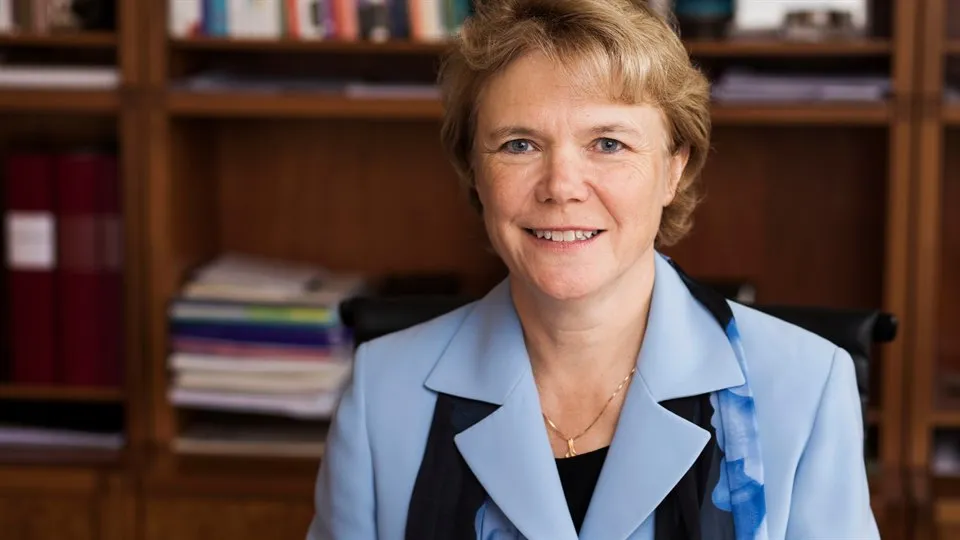University chancellor about the future of the university college
Exciting, fun and incredibly important - then Harriet Wallberg described how she looked at her assignment as university chancellor when she took office on June 1, 2014.
Before she took office as the highest official in the Swedish university and college sector, she was the principal of Karolinska Institutet. Here she develops her views on future universities and colleges in general and at Mid Sweden University.
What future challenges do you see for universities and colleges?
- I see several challenges for the universities and colleges. Maintaining and increasing the quality of the education you give is a central issue. Appropriations for education therefore need to be increased. I also mean that the research connection in the education must be better than today. It is worrying that the gap between research and education is so great. These activities are interrelated, and research cannot possibly maintain its quality if we do not invest as much in parallel with the education.
- It is also important that the Swedish university becomes more international. Student mobility increases and interest in MOOC courses continues to grow. If our Swedish universities and colleges are to be attractive in the future, the HEIs must prioritize working more internationally. Otherwise, the risk is that in ten years you wake up and wonder where all the students went. It is also important to build strong research environments that are internationally attractive to be able to recruit globally.
- I also think the HEIs need to streamline their roles, it would be more effective. Everyone can neither do nor do everything. For example, some higher education institutions must take greater responsibility for conducting international competitive research, while others should take greater responsibility for the education side. Some HEIs can invest heavily in collaboration with business and industry while others niche themselves in other ways.
Will we see any major differences in higher education in, for example, 20 years?
- We will see a significantly more flexible education system in the future where you can build courses or seminars so that it better fits your own needs. The labor market is changing faster and an employee must be prepared to change the tasks. There is therefore a need for more flexible courses and further training courses. I also hope and believe that higher education will be much more international.
What would be your best advice for the future development of the Mid Sweden University?
- To niche and find a clear profile, to have that unique that makes Mid Sweden University sought after. It is, for example, about your ambition to have programs in close collaboration with research and that flexible learning should be the key word for all your education.
